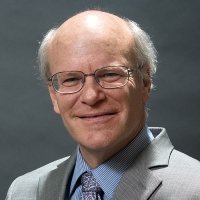Looking Back, Looking Forward: Gender Integration and Women’s Empowerment at USAID
Experts from USAID discussed the progress of the last two years in integrating issues of gender in their programs across the world. They outlined their successes and failures and discussed prospects for gender integration and women’s empowerment programs as they develop in the upcoming year.
On January 8, the Middle East Program at the Woodrow Wilson Center and the United States Agency for International Development (USAID) hosted a meeting on “Looking Back, Looking Forward: Gender Integration and Women’s Empowerment at USAID” with Donald Steinberg, Deputy Administrator, USAID; Paul Weisenfeld, Assistant to the Administrator, Bureau for Food Security, USAID; Carla Koppel, Senior Coordinator for Gender Equality and Women’s Empowerment, USAID; Sarah Mendelson, Deputy Assistant Administrator, Bureau for Democracy, Conflict and Humanitarian Assistance, USAID; Caren Grown, Senior Gender Advisor, Bureau of Policy, Planning and Learning, USAID; and Kay Freeman, Director, Office of Gender Equality and Women’s Empowerment, Bureau for Economic Growth, Education and Environment, USAID. Christina Tchen, Director of the White House Office of Public Engagement, gave the keynote address. Middle East Program Director, Haleh Esfandiari, gave opening remarks.
Steinberg began by pointing out recent changes in USAID policy regarding women’s rights and gender equality. He highlighted the need to have gender policy be inclusive—incorporating women, religious minorities, and members of the LGBT community and that these groups must be beneficiaries of USAID’s work. Steinberg commended Secretary of State Clinton for putting the issue of women’s rights on the international stage. He also praised Secretary of State nominee Senator Kerry, whom he stated as having “an unmatched commitment to women’s rights and empowerment.”
Steinberg listed three important items necessary to incorporate the issue of women’s rights into USAID policy. First, there must be people at all levels of the organization who have a commitment to implementing policy changes that favor women’s empowerment. He cited the leadership of President Obama and Secretary Clinton for their role in spearheading the process, as well as Carla Koppel, for providing leadership in her senior role as Coordinator for Gender Equality. In addition, he cited the need to draw on different parts of the organization as well as the government as a whole for varied expertise. He credited Caren Grown for using her expertise as an economist to successfully incorporating gender into USAID’s policy initiatives. On this same point, he mentioned the need to draw on the talent of the Foreign Service staff and career diplomats, to help implement these policy initiatives. Second, Steinberg noted the need to create detailed and strategies to combat issues such as child marriage, human trafficking, and discrimination in the workplace and to have measures in place to fund, implement, and evaluate these strategies. Thirdly, there must be a change in practice across the government in favor of advocating for women’s rights within specific policy measures. For example, every new project must have a gender balance criterion and there must be new policies and projects set up to protect women from sexual violence.
Finally, Steinberg gave some anecdotal examples of recent successes on the ground with USAID projects to protect and advocate for women’s rights. He lauded the success of USAID’s policy to provide support to an all-women’s university in Khartoum, including providing training, stipends, and security for these students to become women peacemakers in Sudan.
Tchen next spoke about President Obama’s contribution to the issue of women’s rights. Tchen emphasized the importance of this issue to President Obama, evidenced by his issuance of an Executive Order creating the White House Council for Women and Girls. The Council’s two main objectives are (1) to move the issue of women’s rights across government and (2) instill in each agency the importance of taking into account the needs of women and girls. Tchen viewed USAID’s embrace of women’s issues in their policies as one of the Council’s biggest successes. In addition, Tchen pointed out that Pres. Obama’s initiative has been implemented throughout government, including in the Dept. of Defense, which has included women’s empowerment in national security policy, the Dept. of State, which incorporated women’s issues in its Quadrennial Diplomacy and Development Review and Secretary Clinton’s creation of the Office of Women’s Development. Finally, Tchen highlighted the fact that President Obama has included economic and political empowerment of women as a point on his agenda at every major world economic summit.
Tchen also listed a number of economic benefits and positive effects of women’s empowerment, including increasing GDP and increasing the returns to investments in both domestic and abroad. She also stressed the idea that “women’s issues are family issues” and that measures such as equal pay for equal work, expanding workplace flexibility and expanding STEM field opportunities for women all serve to boost women’s income and therefore positively affect the lives of all of her family members.
Finally, Carla Koppel spoke regarding how to cement the positive changes that have occurred within USAID for future policymaking. First, she proposed codifying policies within USAID’s system through more extensive training of staff, regional training programs, hiring additional staff to evaluate and improve programs, and developing data to improve the performance of programs. Second, Koppel stated that in the long term, USAID must focus on continuity through measuring of results and implementation of policies globally. In addition, she mentioned the need for sufficient resources, and constant evaluation of programs for how they take gender into account.
Speakers

Hosted By

Middle East Program
The Wilson Center’s Middle East Program serves as a crucial resource for the policymaking community and beyond, providing analyses and research that helps inform US foreign policymaking, stimulates public debate, and expands knowledge about issues in the wider Middle East and North Africa (MENA) region. Read more
